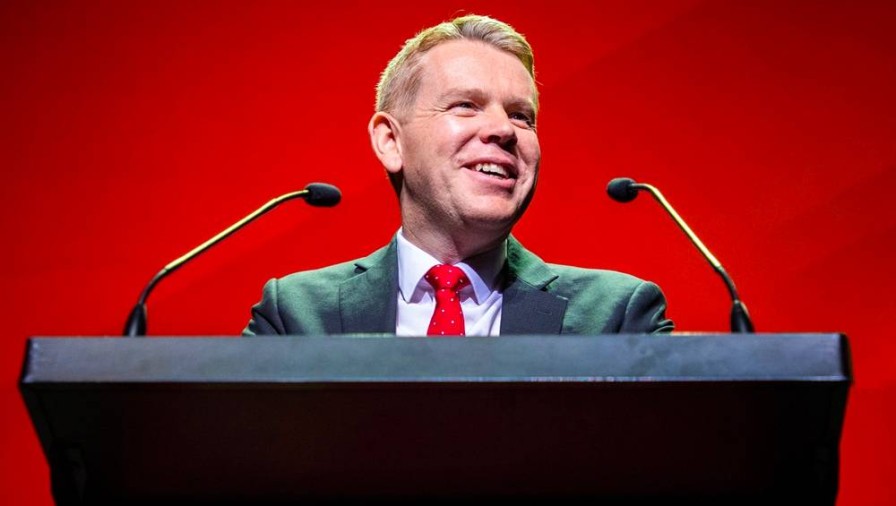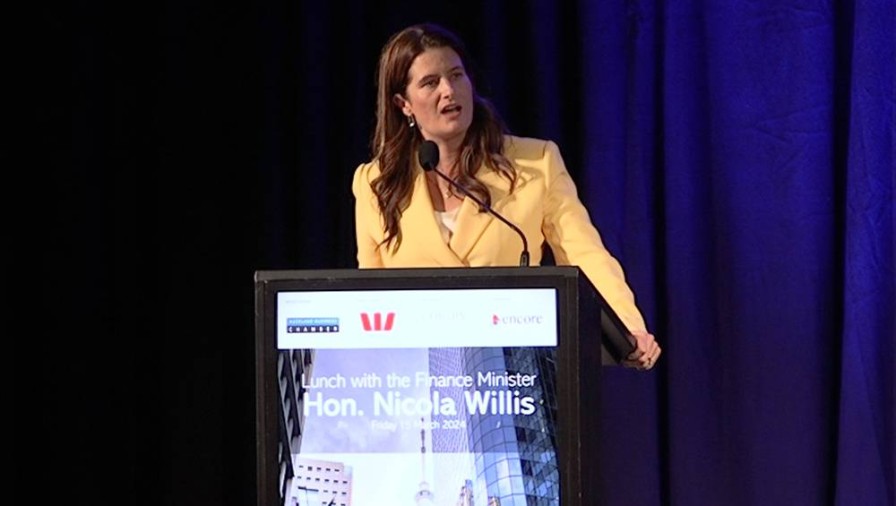Tax cuts, spending cuts but more spending and more borrowing
ANALYSIS: Business groups are taking a wait and see approach to the Budget.
WATCH: NBR political editor Brent Edwards speaks with Grant Walker.
ANALYSIS: Business groups are taking a wait and see approach to the Budget.
WATCH: NBR political editor Brent Edwards speaks with Grant Walker.
Less than 24 hours after Finance Minister Nicola Willis delivered her first Budget, Opposition parties, commentators and businesses are still digesting what it all means.
Willis did deliver tax cuts as promised by lifting income tax thresholds.
In accompanying documents, the Government said the changes would mean an average income household with two children would be about $51 a week better off, a working couple earning $150,000 each about $40, a single adult earning $55,000 a year about $25 and someone on the minimum wage about $12.50 a week better off.
Everyone will presumably be rushing to use the tax calculator on the Budget website to see how much more money they will get each week.
It is not an insignificant amount for some but nor is it an amount of money that will transform people’s lives.
Labour leader Chris Hipkins reminded people during his speech in reply to the Budget that National had promised the average family with children would get $250 a fortnight.
“What are they getting? $60 a fortnight under the tax cuts the Government has delivered,” Hipkins said.

Labour leader Chris Hipkins.
The Labour leader, like NBR presenter Grant Walker, was also worried about superannuitants, noting a retired couple were promised $13 a week by National but under this cut would get just $4.30.
“That’s $2.15 per person. That’s less than a packet of chewing gum. I am astounded Winston Peters agreed to that," Hipkins said.
Labour also believes the tax cuts will put pressure on inflation, with Hipkins saying the Budget failed at its first hurdle with $10b of tax cuts and $12b of borrowing.
“You don’t need an abacus to figure out this is a government borrowing to pay for tax cuts,” he said.
Business reaction was relatively muted, with Business Canterbury chief executive Leeann Watson said additional spending on health and education would be welcomed by business.
“However, we will still want to see the detail on what additional funding will be made available to the vocational learning system, which has been failing those entering the workforce and businesses for years,” Watson said.
She indicated business would be keeping a careful to on non-financial measures like regulation and red tape and had a real interest in what the new Ministry for Regulation would achieve.
“The real proof in the pudding will be on the delivery of outcomes from this Budget, and all eyes will be on how quickly the Government can complete its so-called ‘turnaround job’ for the economy,” Watson said.
So, more a wait-and-see approach than a wholehearted endorsement of the Budget.

Business Canterbury chief executive Leeann Watson.
Willis is adamant the Budget is good for business because it will help rein in inflation, bring down interest rates and give more confidence consumers. And she is pleased National could deliver on its tax cut promise.
But it did not deliver on every promise, with the Cancer Society saying it is deeply disappointed about the lack of additional funding for cancer medicines.
“Our hearts go out to those living with cancer and their whānau who had their hopes raised by National’s election promise last August to fund 13 cancer drugs, only to see them crushed today,” the society’s national executive member Dr Rachael Hart said.
Other groups are also unimpressed, with Greenpeace slamming the Budget for slashing funding on environmental initiatives and iwi around the country mobilising over ongoing concerns about the Government’s approach to Māori, including the fact direct funding for Māori was cut in the Budget.
Even the Taxpayers’ Union was disappointed, with its executive director Jordan Williams criticising the tax cuts for being too timid and accusing Willis of being a bigger spending finance minister than her predecessor Grant Robertson.
Aside from those criticisms and disappointments the big question now is can the Government deliver on the Budget? Can it keep within its spending parameters?
Labour’s finance spokesperson Barbara Edmonds thinks not, saying the increases in health and education spending are only enough to keep the lights on.

Finance Minister Nicola Willis is certain the Budget is good for business.
Budget will likely come under pressure as demand and cost increases bite.
Willis acknowledges it will be a challenge and says the Government will continue to look for more spending cuts to help keep the books on an even keel.
NBR's Walker isn’t so impressed with Labour’s criticism and wonders if that party has forgotten its previous large spending has put the Government’s books into a more perilous position, even as the Greens and Te Pāti Māori also rail against the Budget.
Walker asks what score the Budget should be given out of 10. It is always difficult to judge. From the Government’s perspective it has largely delivered the Budget it promised.
Once economist labelled it a “solid start” but there will be plenty of interest in where it ends up.
Willis will at least get her opportunity to address some of Business Canterbury’s questions when she speaks to the organisation next Wednesday.
She and other senior ministers have embarked on a round of meetings and speeches to sell the Budget to the business community and others.
But the full effect of the Budget won’t be known for some time.
And as Willis and Prime Minister Christopher Luxon point out it is just one of three budgets before the next election.
Brent Edwards is NBR's political editor.
Sign up to get the latest stories and insights delivered to your inbox – free, every day.